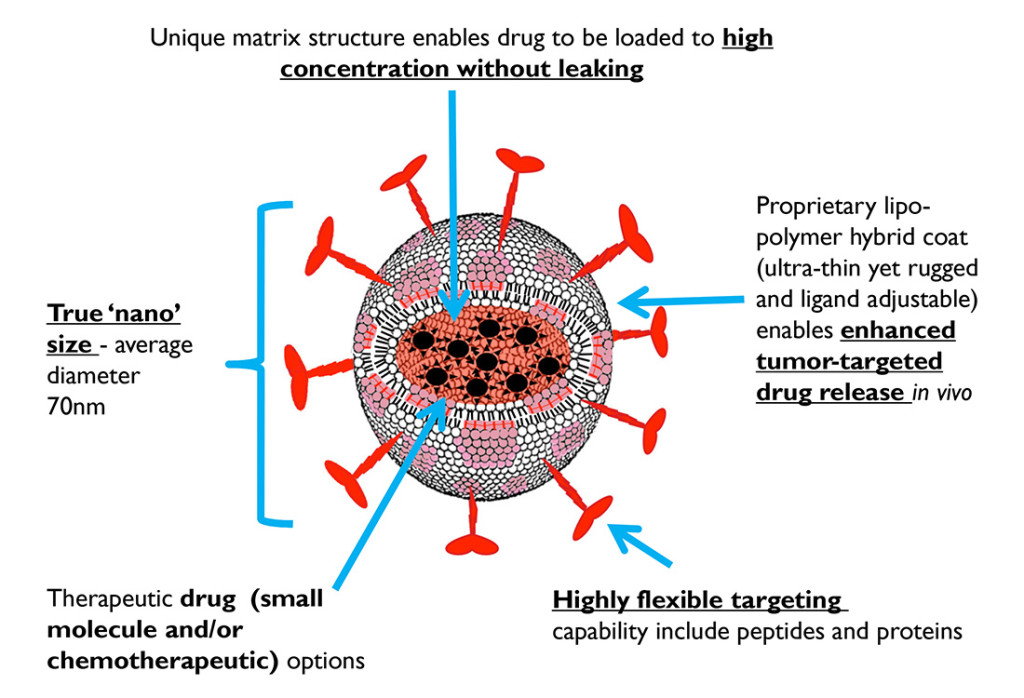OUR MISSION
NanoValent is advancing a new generation of Targeted Nanosphere (TNS) based products incorporating our core and highly optimized HPLN (Hybrid Polymerized Liposomal Nanoparticle) IP technology. These TNS may provide a vast improvement over current treatment options including chemotherapy, antibody, immunotherapy and ADC based products. Both by repositioning existing therapies such as chemotherapeutics and by truly targeting and optimising the delivery of emerging candidates including biologicals, small molecules and nucleic acid based therapeutics.
Our current main candidate focus is in oncology with our lead candidate NV103 (Irinotecan-anti-CD99) approaching potential IND status with strong data in CD99 expressing tumor models including Glioblastoma, Pancreatic, Ovarian and Ewing Sarcoma. However, it is already clear, that once clinically validated, TNS technology can be applied to other oncology challenges plus, due to their capacity to cross the blood brain barrier (BBB) other non-oncological sectors such as neurology. We also have other candidates such as NV101 (Doxorubicin-anti-CD99), NV102 (Doxorubicin-anti-CD19) and a rapidly progressing pilot program in nucleic acid delivery.
